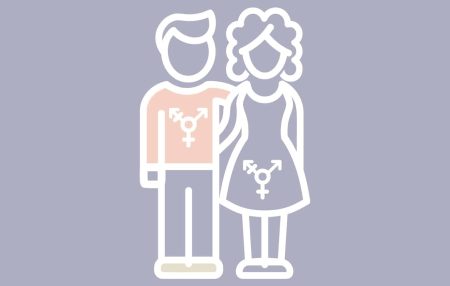29 October 2021
Sir Andrew McFarlane, President of the Family Division, delivered a speech on 16 October 2021 addressing the future of the Family Justice System in England and Wales as we continue to navigate through the Covid-19 pandemic. In doing so, he looked at the future mechanics of court hearings in the Family Division, well-being of all those who work in the Family Court and the Court of Protection and the future of digital reform. These issues matter because they will shape and influence the way in which future court business is conducted as well as outcomes for parents, children and families.
Remote Court Hearings
Due to the Covid-19 pandemic, many court hearings in the Family Division have so far been dealt with by way of remote or hybrid hearings as opposed to in-person. Sir Andrew McFarlane explained that we have now reached a point in the pandemic where it is possible to think about a gradual increase in the number of cases that are heard in-person in court, as opposed to remotely or by way of a hybrid hearing. He went on to say that he did not intend to issue formal national Presidential Guidance about this and that instead, judges and magistrates should continue to exercise their discretion about the format of court hearings on a case-by-case basis as they have so far been doing.
Whilst not issuing formal guidance, Sir Andrew McFarlane did however proceed to set out some broad parameters of what is now expected in general terms with respect to remote working. Of particular note he went on to say:
“No one working in the Family Court or the Court of Protection now expects a return to the status quo, in terms of working practices, that existed in February 2020. Supported by enhanced IT, the courts have now become used to remote working and, for an appropriate hearing, and there will be many, this should now be the format of choice.
The central theme running through the approach that should apply is that the parties and their lawyers should normally be physically present at court on those occasions when an important decision may be taken.”
He acknowledged that there are geographical factors to be taken into account in determining whether there should be an in-person or remote hearing to include: whether it is necessary or proportionate to conduct an in-person hearing depending upon the distance from court, availability of public transport and other factors. He went on to explain whilst it is important to embrace the positive benefits of remote court hearings, in-person court hearings can be beneficial too. He explained how in-person attendances at court can provide a valuable opportunity for advice, negotiation with other parties and possible settlement that is not afforded provided by court hearings. He added that for some lay parties, it can also afford less respect to the court process if it is conducted remotely. He went on to say that:
“Remote platforms are good for undertaking transactional communications, but there is more to a Family Court hearing than simply transacting business. Much that goes on has a ‘human’ perspective, which can often be lost online, but is fully present in a court room.
We need to continue to embrace the technology and to use it, for the right hearings, to the full. There are clear detriments to attended hearings in terms of travel time and the inability to attend to other cases at other centres during the extended time needed for physical attendance. There are also unwelcome collateral consequences in terms of additional expense, carbon foot-print and other factors. Part of my message is, therefore, that remote hearings, for the right case, are here to stay.”
As such, remote hearings in the Family Court and the Court of Protection will continue to be used on a flexible basis and they will provide another option for resolving legal issues and conducting court business. This is good news and it marks a positive step forward in embracing the benefits of modern technology and improving our commitment towards the environment.
Specialist Fertility and Family Law
Specialist fertility and family law advice also navigates many complex legal and wider issues associated with fertility treatment, donor conception, surrogacy, co-parenting arrangements, adoption and complex personal situations. It can create a bespoke family building legal and practical action plan to help preserve and maximise individual fertility, understand options and make better informed decisions about conception, family creation, biological identity and legacy. It also helps effectively navigate many complex fertility and family law issues, including:
- Acquisition of legal parentage following a domestic or international surrogacy arrangement.
- Acquisition of legal parentage following a known donor arrangement.
- Acquisition of legal parentage following a co-parenting arrangement.
- An application to bring or defend a Declaration of Parentage (e.g. following a direct-to-consumer DNA test or to re-register a birth certificate).
- An application to bring or defend a step-parent adoption order.
- An application for an order to recognise a foreign adoption under English common law.
- Unexpected death of a loved-one and related issues associated with posthumous storage and use of eggs, sperm and embryos in fertility treatment (e.g. due to an accident, illness including Covid-19).
- Care and upbringing of children following a dispute with an ex-partner, parent, donor or surrogate.
- Legal issues and options where women face rapidly declining age-related fertility and loss of opportunity for conception (e.g. fertility preservation and maximisation, management of existing personal relationships and implications of using donor gametes).
- Delays in medical diagnosis and consequent treatment and associated impact on individual fertility.
- Difficulties with storage and use of frozen eggs, sperm and embryos in fertility treatment in the UK (e.g. lack of consent and expiry of storage terms).
- Issues associated with import of frozen gametes and embryos into the UK for use in fertility treatment and surrogacy (e.g. due to anonymous and commercially obtained gametes and embryos which engage UK public policy restrictions).
- Issues associated with the export of frozen gametes and embryos abroad for use in fertility treatment and surrogacy (e.g. lack of consent and storage term difficulties).
- Legal parentage disputes with an ex-partner, donor, co-parent, step-parent, surrogate.
- Legal parentage disputes with a UK fertility clinic (e.g. problems and omissions with HFEA consent forms).




